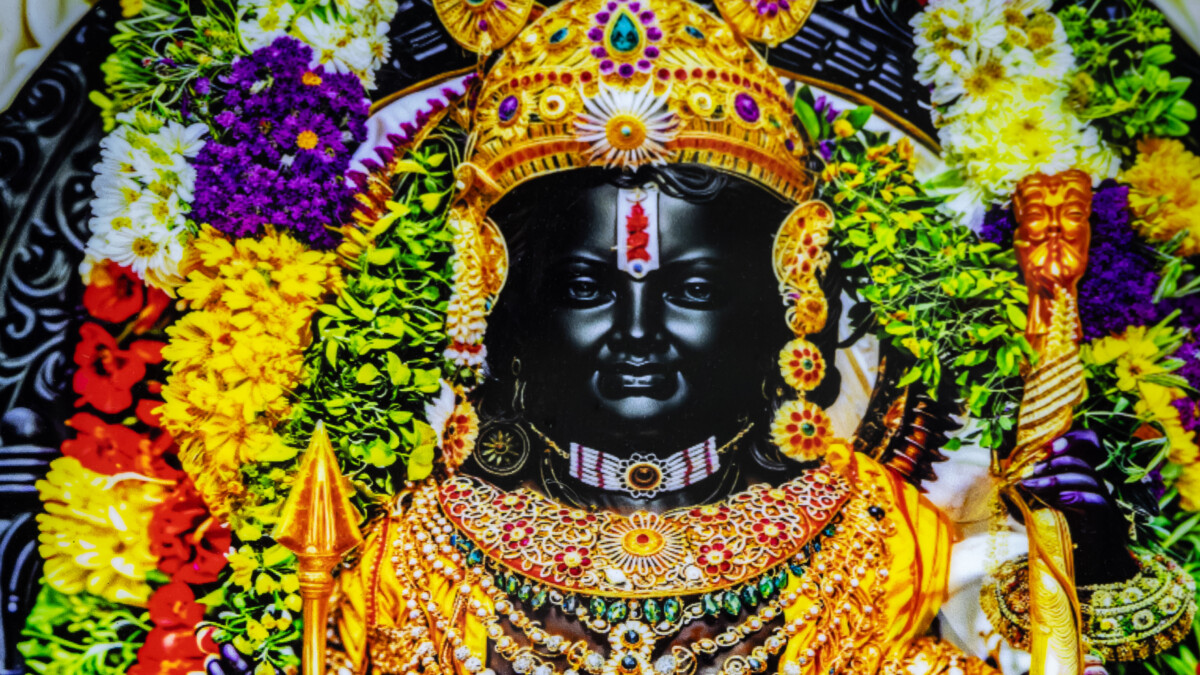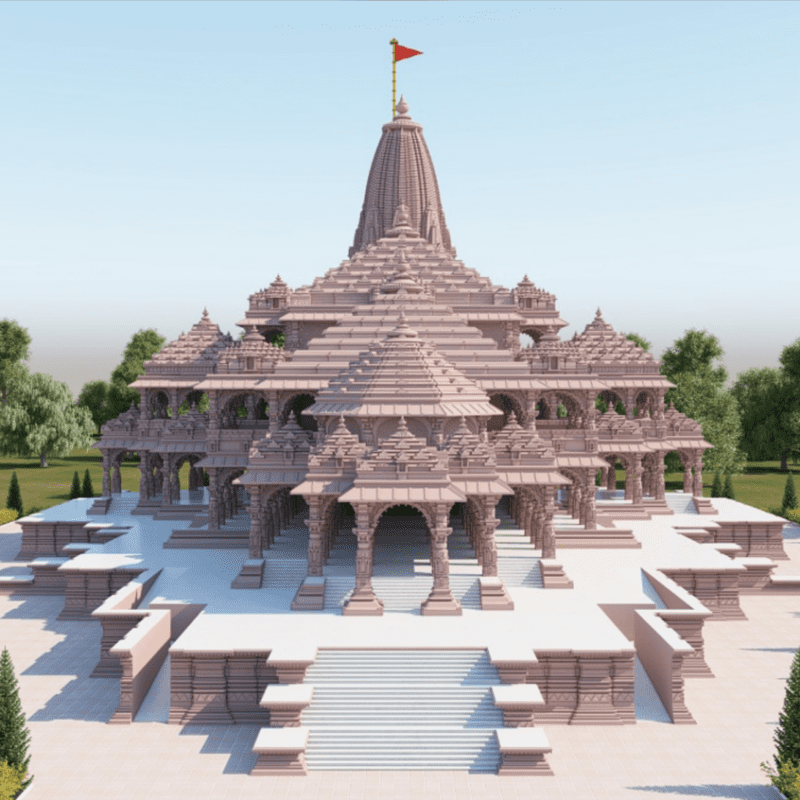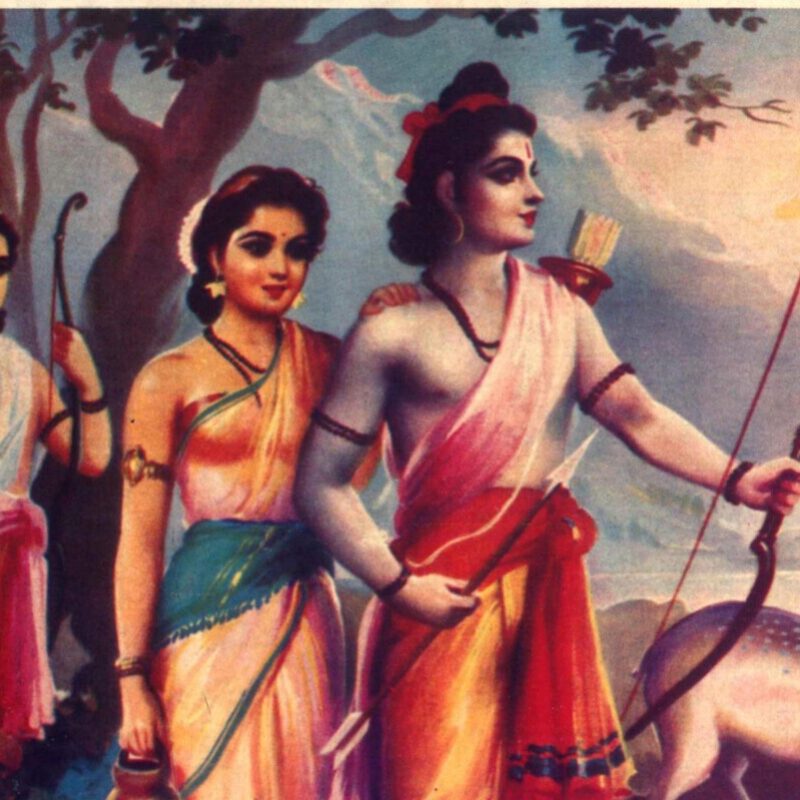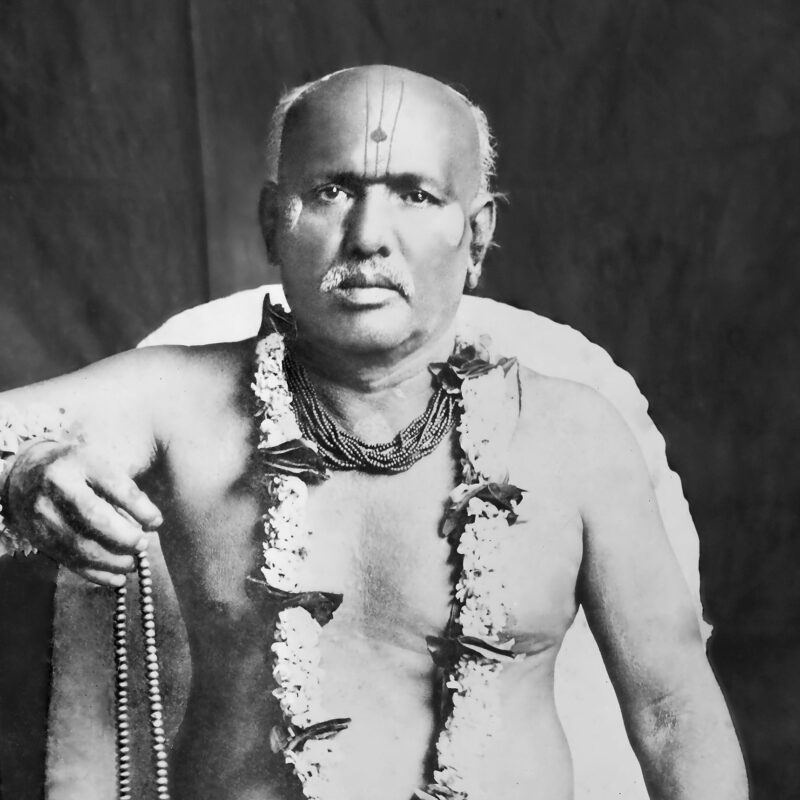
In 2020, on August 5th, Narendra Modi laid the foundation stone for the Ayodhya Ram mandir construction. It led to an onslaught of Hindu hatred and bigotry on Facebook, turning friends to cancel each other and become lifelong enemies.
I, too, felt the heat of it all when I shared my family celebrations of the auspicious event on Facebook (FB). One of my friends Asma ( name changed for privacy) , commented that all those who celebrate the commemoration of the Ayodhya mandir openly support violence, to which another replied, that all those who celebrate shall pay for their sins.
I couldn’t keep quiet any longer and replied earnestly because I sincerely believe in the power of respectful, fact-based communication.
“Thanks Asma, for bringing up the sensitive issue of Ayodhya Ram mandir and the celebrations of its re-construction. I have been wondering about it myself. I don’t enjoy discussing religion and politics on social media generally because it is stressful and useless. I’m also cautious about expressing my thoughts online, lest it hurt someone without context.
But I’ve quietly observed that my sensitivity is single-fold over the years. I’ve felt shame, restraint, and doubt over celebrating my faith online since a greeting like “Jai Shree Ram” and being a “bhakt” is anti-Muslim, extreme right-wing. But sadly, online Hinduphobia has no such restraints. So, secular, compassion, and empathy only apply to non-Hindus? Your Facebook posts make me wonder if your narrative of compassion and kindness is single-sided.
So, how are you different from the ones you call out wrong?
Where are the dialogues, Asma?
You ponder if those who celebrated August 5th also support violence. I don’t, for in my view, humanity is not Hindus or Muslims. Humans have the same value and inner worth due to their in-dwelling divinity. Indian Muslims are not second-class citizens but have equal rights as any other Indian. And the word equal applies to everyone, not just to minorities. Lastly, I neither opine that Muslims who protest against the current government should move to Pakistan instead because India is equally theirs as mine. And yes, India is equally mine as theirs.
Those who know me personally can vouch that I will not mistreat another. My home has welcomed people from diverse faiths and belief systems. But again, this secularism and tolerance is only from me. My friends don’t think twice when it comes to belittling my beliefs – my Gods, rituals, and even history have been ridiculed and made fun of, and if I’m progressive, I should gulp it and align with everyone. But would anyone in this country have the guts to do so with their Muslim and Christian friends?
Sadly, the reality is that Hindus feel most discriminated against in India, the land that gave birth to their faith!
From childhood, I’ve wondered :
Where are the dialogues, around Muslims receiving government grants to travel to Mecca and Medina while we Hindus don’t receive a penny to visit Kashi and Mathura? Why are my holy places any less significant than that of others?
Where are the dialogues, around the atrocities that the Kashmiri Hindus faced in the Valley over decades? An entire region that was the cradle of everything Sanskrit and Hinduism underwent systematic genocide, but no, that’s OK? For example, when it comes to Article 370, none of your posts are remotely compassionate towards the scores of Kashmiri Hindus who have been wiped out or forced to flee. I have friends whose entire families were butchered, had to leave the Valley overnight, and cannot claim anything because of Article 370. I have another Hindu friend who married outside the state of J&K and lost the right to all her ancestral properties. But there is no mention of these struggles in your posts.
Where are the dialogues, around compassion when Hindu priests and others whose limbs are cut off and killed if they protest radical Islamization of their communities? These incidents are not rare but fail to gather media attention.
In short, Hindu lives are dispensable, but others are not? If you are a majority, any atrocity against you is OK?
Where are the dialogues, around the Sabarimala devotees being lathi-charged and hosed down just because a conniving politician suddenly woke up and decided that women’s equality is about them entering a remote, unknown temple? No real effort to understand the spirituality behind centuries-old practices? I grew up in a family of Sabarimala devotees ( my paternal grandparents did the annual pilgrimage for 30 consecutive years) that upheld women’s rights and education. The temple restrictions do not equate to a lack of women’s equality! But do you genuinely care? Didn’t it seem odd to you that Muslim women, clad from head to toe in synthetic black clothing in the sweltering Kerala heat where protesting to espouse for the rights of their Hindu counterparts to enter a temple they would never enter themselves? Maybe it’s time we all fight for our own rights first?
Where are the dialogues, around secular boards managing Hindu temples in India but not mosques and churches? Imagine a Tilak-sporting Hindu board member opining to his Muslim and Christian board members?
Where are the dialogues, around the brutal raping, conversion, and forced marriages of young Hindu girls in Pakistan and Bangladesh? What about the decimation of Hindus to a mere decimal in these countries? Where are the human rights activists when gross violations occur against minority Hindus?
Where are the dialogues, around the constant shaming of Hindus for every festival from Holi to Rakshabandhan, but not a whisper around any non-Hindu festival?
But when I, a Hindu, question, I run the risk of causing disharmony and divisiveness, but this is not the case when you, as a Muslim, do so! Your FB posts, for example, always have a one-sided argument /outlook that refuses to look at the pain points, the wounds, and the grieving of the others involved.
Ultimately, the truth, Asma, is that your opinions are primarily influenced by what your social media feeds you. Media has, unfortunately, partitioned us. Your reality and mine of injustice is what we allow into our conscience, right?
And in current-day India, if you are a Hindu who practices their faith, then you have to bury centuries of wounds and intense grief. But be OK with history, no matter how cruel and brutal it was to your ancestors! The popular media narrative is that Hindus should learn to get over their years of grieving from the destruction and shaming of their faith- eerily similar to what America has told the Native Americans: It’s all OK- come on now, move on!
Present-day Hindus are always making compromises, always apologetic, and always asked to forget! However, this request for selective memory is also selective. It’s OK to forget the Kashmiri Hindu carnage but not OK to forget the riots in the aftermath of the Babri Masjid demolition. So you see, this so-called compassion, empathy, and care are only one-sided. If life matters, then it EQUALLY applies to everyone. Your arguments are partial and conditioned until you are open to such dialogues.
In this sense, the Ram mandir is just the tip of the iceberg. Shri Ram in Ayodhya is to the Hindus what Mecca and Medina are to the Muslims. If, in the past, the shrines in Mecca and Medina were destroyed, then they would have been rebuilt 1000 times by now, no matter what! The recent Hague Sophia mosque in Turkey is an example. If everyone else lays claims to what’s originally theirs, then Hindus should also be allowed to do so. At least claim rights to what stands core to their faith and value system, a fraction of the enormous loss they have had over the centuries from Afghanistan to Bangladesh. Historical facts prove that the Muslim rulers never acknowledged the land as Muslim property, even during their reign. The efforts to claim the mandir back have been ongoing for decades now. It was after years of waiting that the demolition occurred. And is that right? Do I support it? No? Unfortunately, when the rulers don’t serve justice for ages, the commoner takes the law into his own hands.
The Hindus in India are finally waking up to demand that:
What they believe also counts.
What they follow and want for their faith also counts.
What they grieve also counts.
What they lose and have lost also counts.
A Hindu’s dialogues also counts.
My unapologetic Hindu voice is the intent behind my celebration on FB. I no longer want to be the one who always lets everything slip in the name of community and friendship while no one truly cares about my beliefs and thoughts. It’s a one-sided friendship, a false sense of community, and hypocrisy at its worst.
I wrote this knowing that many will unfriend me but I’m OK with that. You see, my voice as a majority Hindu woman matters, too. And I matter, too, in my friendships and communities.
For me, the August 5th celebration was of historical and spiritual significance. I’ve grown up listening to the Ramayana, and its values have guided me to date. Our avatars modeled compassion, love, forgiveness, and standing up for one’s rights. Today, how I treat others has evolved from my spiritual and religious beliefs. The Babri Masjid in Ayodhya is just another masjid to the Muslims, not of special historical or religious significance. But the Ram Mandir in Ayodhya is the epicenter of Hinduism. Shri Ram and Shri Krishna are the pillars of the Hindu faith, and a temple at the birthplace of one of them means the WORLD to the Hindus. And it takes 500 years to justify that in-spite of every historical and archaeological evidence?
Asma, these are complex dialogues and need a lot of deep listening and empathy. You misinterpreted my FB celebration yesterday as intolerance, which is farthest from the truth. If I meet you tomorrow, I will make no such discrimination. For in the truest sense, you are a manifestation of my dear Lord Shri Ram, who modeled inclusiveness, love, and bonding. I will not unfriend you or distance you. You are not my enemy, but at the same time, I matter too.
The million-dollar question Asma, is how do we learn to coexist in a manner that shames neither you nor me?
And that question can truly be answered only when we have heartfelt dialogues.
So again, where are the dialogues, Asma?
I’ve wanted to write to you for ages, and I’m so glad I finally did.”








































